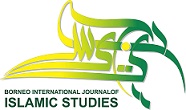The Role of Sharia Judges in Indonesia: Between The Common Law and The Civil Law Systems
Abstract
This article seeks to analyse the role of Religious Courts’ (Pengadilan Agama or PA) Judges in the formation of Islamic law in Indonesia. As part of the civil legal system, PA Judges are bound by legal provisions in handling legal disputes in court. They must apply the applicable legal provisions to decide upon a case. This condition can also be understood from the aspect of appointment of judges in Indonesia, including PA Judges, which is conducted not through professional career path as in the common law system. Thus, they are appointed from a new graduate of law/sharia faculty and then trained, inter alia, to apply and/or interpret applicable laws (legislation); and not to make the law itself. However, on the basis of secondary data analysis, studies on the ijtihad of PA Judges reveal that they are no longer only fixated on the provisions of statutes in deciding cases. They also make laws, cases in point are the Compilation of Islamic Law (KHI) and the Compilation of Sharia Economic Law (KHES), do ijtihad on the books of fiqh which became the basis for the drafting of Islamic legislation in Indonesia. Some of them even do direct ijtihad from Sharia sources, namely the Qur'an and Hadith. This condition is arguably more in accordance with the character of judges (qadis) in Islamic history which on a certain level similar to the role of judges in common law system.
Keywords: Sharia Judges’ Role, Legal Profession, Bureaucracy, Common Law System, Civil Law System
References
Alfitri, Alfitri. “Whose Authority? Interpreting, Imposing, and Complying with Corporate Zakat Obligations in Indonesia,” 2015. https://digital.lib.washington.edu:443/researchworks/handle/1773/33993.
Bedner, Adriaan, and Stijn Van Huis. “Plurality of Marriage Law and Marriage Registration for Muslims in Indonesia: A Plea for Pragmatism.” Utrecht Law Review 6, no. 2 (2010).
Cammack, Mark. “Inching Toward Equality: Recent Developments in Indonesian Inheritance Law.” Indonesian Law and Administration Review 5, no. 1 (1999).
———. “On RI’s Islamic Judiciary.” The Jakarta Post. Accessed December 23, 2011. www.thejakartapost.com/news/2011/12/23/mark-cammack-on-ri-s-islamic-judiciary0.html,.
Cammack, Mark, Lawrence A Young, and Tim Heaton. “Legislating Social Change in an Islamic Society – Indonesia’s Marriage Law.” American Journal of Comparative Law 44 (1996).
Cook, Catriona. Laying down the Law. 5th ed. Sydney : Butterworths, 2001. http://trove.nla.gov.au/version/45507077.
Gifford, D. J. Understanding the Australian Legal System. Sydney: Cavendish Pub. (Australia), 1997.
Glendon, Mary Ann, Paolo Carozza, and Colin Picker. Comparative Legal Traditions: Text, Materials and Cases on Western Law,. 3 edition. St. Paul, MN: West, 2006.
Glenn, H. Patrick. Legal Traditions of the World: Sustainable Diversity in Law, 2014.
Glos, George E. Comparative Law. Littleton, Colo: Fred B. Rothman, 1979.
Hallaq, Wael B, and Inc Ebrary. Authority, Continuity, and Change in Islamic Law. Cambridge, UK [u.a.: Cambridge University Press, 2001.
Hooker, M.B. Indonesian Syariah: Defining a National School of Islamic Law. Singapore: ISEAS, 2008.
Lindsey, Timothy, and Kerstin Steiner. Islam, Law and the State in Southeast Asia. Volume 1, Volume 1,. London: I.B. Tauris, 2011.
Maher, Francis Kevin Heathcote, Peter Louis Waller, and David P Derham. Derham, Maher and Waller an Introduction to the Law. Sydney: The Law Book Co., 1991.
Mawardi, Imam. “The Political Backdrop of the Enactment of the Compilation of Islamic Laws in Indonesia.” In Shari’a and Politics in Modern Indonesia. in Arskal Salim and Azyumardi Azra (eds). Singapore: Institute of Southeast Asian Studies, 2003.
Merryman, John Henry, and Rogelio Pérez-Perdomo. The Civil Law Tradition: An Introduction to the Legal Systems of Western Europe and Latin America. Stanford, Calif.: Stanford University Press, 2007.
Milsom, S.F.C. Historical Foundation of the Common Law. London: Butterworths, 1981.
Nurlaelawati, Euis. Modernization, Tradition and Identity: The Kompilasi Hukum Islam and Legal Practice in the Indonesian Religious Courts. Amsterdam: Amsterdam University Press, 2010.
Nurlaelawati, Euis, and Abdurrahman Rahim. “The Training, Appointment, and Supervision of Islamic Judges in Indonesia.” Pacific Rim Law and Policy Journal 21, no. 1 (2012).
Parkinson, Patrick. Tradition and Change in Australian Law, 2013.
Stein, Peter Gonville, and Cambridge University Press. Roman Law in European History. Cambridge; New York: Cambridge University Press, 2013.
Weeramantry, C. G. An Invitation to the Law. Pannipitiya: Stamford Lake, 2009.


.png)






